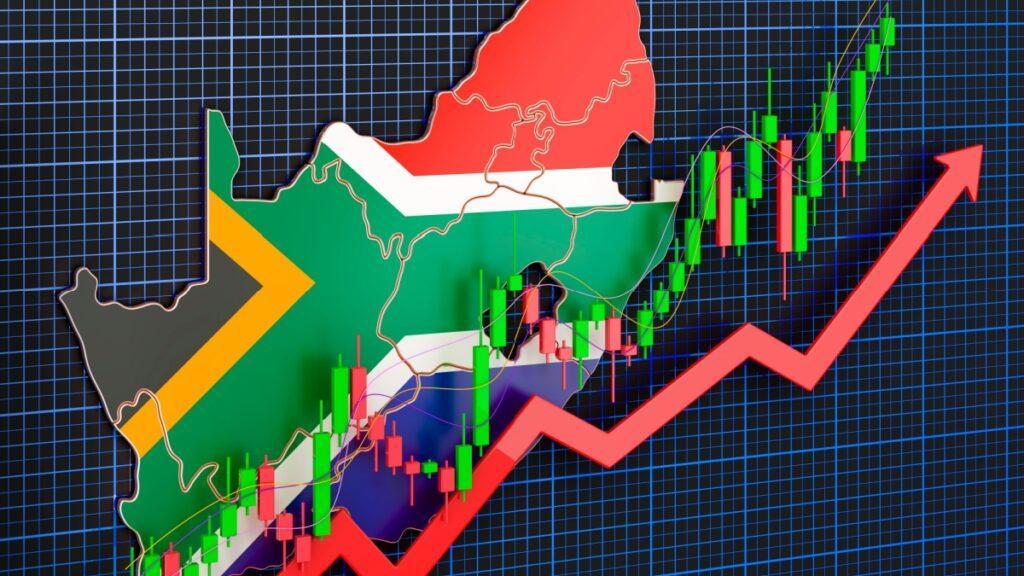Africa-Press – South-Africa. South Africa is an example of what happens when capital is wasted in an economy, with the country’s lacklustre economic growth largely stemming from the misuse of taxpayer funds.
This stands in contrast to more developed economies worldwide, such as the United States, which are more efficient in capital utilisation.
The head of the research institute at Investec Wealth & Investment, Professor Brian Kantor, outlined this difference between South Africa and more developed economies in a recent research note.
Kantor explained that all businesses, including state-owned enterprises (SOEs), are under pressure from shareholders to generate economic profits.
The poor performance of South Africa’s economy over the past decade has meant that local companies have fewer opportunities to generate such profits than in other economies.
An important reason for this failure to grow is the operating performance of the SOEs and the terrible waste of taxpayers’ capital, Kantor said.
For example, Eskom, the state-owned electricity utility, employs as much as R700 billion of capital in its operations.
Kantor said the return on this capital is at best around 1% per year, and if Eskom were to cover its cost of debt at around 11% per year, it would need to generate an additional R70 billion per year from its operations.
To put it another way, Eskom has been wasting about R70 billion of taxpayers’ potential income every year.
Transnet, the state-owned transport company, which employs about R312 billion worth of capital at an 11% annual charge, is similarly wasteful.
It would require approximately R31 billion of additional profit annually to cover its costs of capital. These numbers illustrate the sacrifices taxpayers have made in terms of potential income had capital been used more efficiently.
Kantor said South Africa needs a revolution in its use of capital, with a specific focus on the return on capital and on the interest of its shareholders in SOEs.
The government is commonly seen as the sole shareholder in SOEs, but given the significant bailouts they have received from taxpayers in recent years, Kantor said all taxpayers should be viewed as shareholders.
The solution is obvious for Kantor – taxpayers should not be throwing potentially valuable capital after bad.
They should demand that the inefficient operations of the SOEs be transferred to private operators, who need to cover their costs of capital to survive.
The state can exchange assets or additional capital for a stake in more efficient businesses. If we get it right, then the South African government can look forward to taxing their profits rather than covering their further losses.
A study in contrast
In contrast to South Africa, the United States has been a more efficient user of capital in the past decade, creating tremendous wealth for its citizens.
However, the United States has not always been great in this regard, with periods of capital destruction, particularly in the 1960s and 1970s.
The country was plagued by high inflation, which rose to 13% in December 1979, and the costly Vietnam War, which consumed a significant share of its productive capacity.
And then came an impressive comeback, with inflation coming under control in the 1980s after a short, sharp recession, and the Cold War came to an end in the 1990s.
Another significant development for the economy was also underway. The revolution in corporate finance, both in theory and practice, transformed how US businesses operated and improved their performance, Kantor explained.
Increasingly, managers acted in the interest of the providers of their all-important capital, their shareholders. Return on capital became the focus of management’s attention.
This discipline was forced on managers by increasingly active investors, backed by unprecedented access to credit.
Shareholders did not need business managers to diversify on their behalf. Conglomeration became a dirty word.
The share market could do it for them, and big businesses became more specialised, efficient, and profitable in the true economic sense – earning more than the opportunity cost of the capital they employed.
The bar was being raised for US businesses and their CEOs, and they responded accordingly by improving the efficiency of their operations, which benefited workers, savers, and investors.
The US equity markets tell the story of improved efficiency and enormous amounts of additional wealth creation.
Kantor said that the improvement in the value of US equities and the strength of household balance sheets after 1985 was nothing less than extraordinary.
The value of US households’ investments in equities, adjusted for inflation, was stagnant between 1960 and 1985.
Put another way, the share market was not a source of real wealth creation for about a quarter of a century.
Thereafter, the market value of US equities held by households took off and is now worth about 18 times more in real terms than in 1985.
Buoyed increasingly by the gains in these equities’ market value, the household wealth ratio after debts to household incomes has increased from 4.8 times in 1987 to the current over seven times, even as disposable incomes have risen.
Between 2020 and 2024, personal incomes after taxes, assisted by Covid-19 relief, grew from $14 trillion to $22 trillion, or by 57%.
The net worth of US households grew much faster and extraordinarily over the same period, from $42.2 trillion in 2020 to $163.5 trillion, or by 287%.
Source: dailyinvestor
For More News And Analysis About South-Africa Follow Africa-Press






